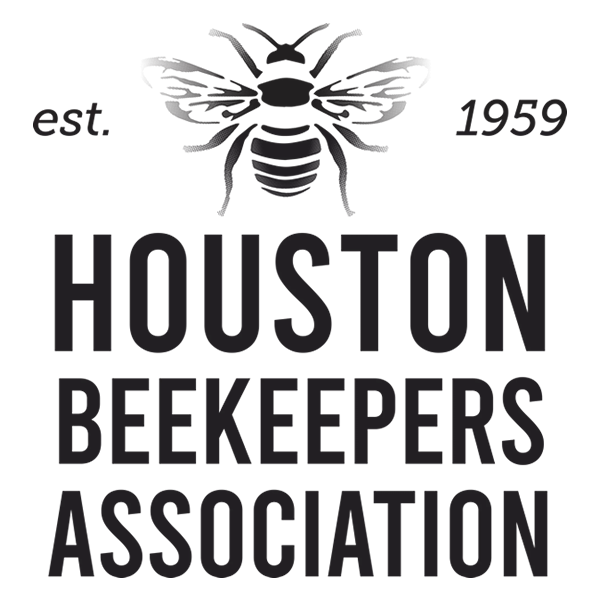Become a Beekeeper
Interested in Beekeeping?
The Houston Beekeepers Association and its members are here to help you get started. Getting involved with your local beekeeping club and asking questions to beekeepers in your area is an important first step to becoming a beekeeper. Beekeepers love to share information and are never short on good advice.
What it takes to be a Beekeeper
Time:
It takes a few hours to assemble equipment and add the bees. Colonies must be managed to aid in preventing disease and pests. Typically this is about 20 minutes for each hive, twice a month in the growing season and much less in the winter. You will also need to set aside time to educate yourself on good honeybee stewardship.
Cost:
The cost for setting up a hive comes to approximately $500-$1000 for basic hive materials, bee suit and tools during the first year depending on what you buy. Recommendations are to start with two hives adding about another $300 for bees and hive equipment. There are even less expensive ways to get started that local beekeepers could help with.
Learning:
Local clubs, like the Houston Beekeepers Association, provide the best information on beekeeping in our area. Please see our resource list below on how to get started.
Beekeeping, even on a small scale, is a rewarding and fun hobby. When you join the Houston Beekeepers Association, you receive benefits such as equipment rental and access to curated programming.
Educational Resources for Beekeepers
- The Houston Skep The Houston Skep is HBA’s monthly newsletter. It will have information about the last meeting, the next meeting, club news and a calendar of upcoming events and classes. Access the most recent issue and past issues of the Skep.
- HBA Meetings We meet on the third Tuesday of every month at 7pm (during COVID-19, we are meeting virtually). You can view past meetings on our YouTube channel.
- Mentorship Getting hands on experience is the best thing you can do as a learning beekeeper. Not only are there professional mentors in the club that offer shadowing, classes and services, you can connect to and lean on our beekeeping community through our facebook group and during our meetings.
- Books Any books on beekeeping are generally good. Here are some of our favorites:
- The Beekeeper’s Handbook, 4th Edition – Diana Sammataro and Alphonse Avitabile (2011)
- First Lessons in Beekeeping – Keith Delaplane (2007)
- The Backyard Beekeeper, 4th Edition – Kim Flottum (2018)
- Honey Bee Biology and Beekeeping, 2nd Edition – Dewey Caron (2013)
- Beekeeping for Dummies, 2nd Edition – Howland Blackiston (2009)
- Top-Bar Beekeeping: Organic Practices for Honeybee Health — Heather Harrell and Les Crowder (2012)
- Beginning Beekeeping — Tanya Phillips (2017)
- Periodicals
- American Bee Journal
- Bee Culture
- Texas Beekeepers Association’s Journal
- Podcasts
- Bee School Radio episodes of Beekeeping at Five Apple Farm
- Two Bees in a Podcast
- The Hive Jive
- Beekeeping Today
- Websites
- Texas Apiary Inspection Service: http://txbeeinspection.tamu.edu/
- Texas Master Beekeeper Program
- Texas A&M Honey Bee Lab
- The University of Florida Honey Bee Lab: http://entnemdept.ufl.edu/honey-bee/
- Bee Informed Partnership: https://beeinformed.org/
- eXtension: America’s Research-based Learning Network: http://articles.extension.org/bee_health
- Honey Bee Health Coalition: http://honeybeehealthcoalition.org/Varroa/
- The BeeMD Bee Symptom Checker: http://www.thebeemd.com/
